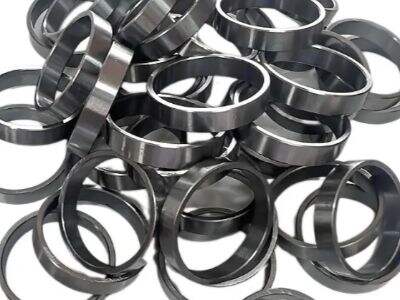製品を改善するための CNC 加工 適切な材料を選択することは非常に重要です。適切な材料を使用すれば、最高の製品が生まれます。適切な媒体を選択することは、作業に最も適した器具を選択することに似ています。不適切なツールを使用すると、難しい作業になり、結果が期待どおりにならない可能性があります。
ただし、材料の品質によって、製品の最適な機能と寿命が保証されます。そこで、プロジェクトに適した CNC 加工材料を選択するための重要なヒントをいくつか紹介します。
CNC加工における材料選択のガイドライン
強度: 加工材料を選択する際に考慮すべき基本事項がいくつかありますが、まずは強度です。強度は、材料が応力やストレスに耐える方法に関係します。材料は加工力に耐えなければなりません。これは非常に重要です。材料が弱いと、壊れたり破壊されたりする可能性があるためです。強度のある材料を使用することは、最終製品が使用時に良好な性能を発揮し、できるだけ長持ちするようにするために重要です。したがって、自動車に組み込む部品を作成する場合は、大きな力やストレスに耐えられる材料が必要です。
機械加工性: この材料をどれだけ簡単に機械加工できるかを意味する、非常に難しい言葉です。使用する材料によって、機械加工が難しくなったり簡単になったりするため、最終製品の品質に影響します。材料が機械加工しにくい場合、プロセスが長くなり、うまく加工できない可能性があります。機械加工しやすい材料を使用すると、よりスムーズな処理と正確な部品が得られます。これにより、時間とエネルギーを節約でき、より良い結果が得られます。
表面仕上げ: 表面仕上げに関して、品質とは、加工後の表面の美しさ、つまり、加工後の滑らかさと見栄えの良さを指します。高精度または美観が求められる用途では、高品質の表面仕上げが不可欠です。粗い表面仕上げや不均一な表面仕上げは、製品の機能と外観に影響を与える可能性があります。最終製品が機能的であるだけでなく、見た目も美しいものになるように、仕上がりの良い素材を選択してください。装飾的なものを製作しているとしましょう。この場合、表面仕上げが重要になります。
適切なCNC加工材料を選択する方法
ステップ 1: 製品のニーズを理解する: 適切な材料を入手するために最初に行う必要があるのは、製品に必要なものを決定することです。これは、プロジェクト前の計画に相当します。サイズ、形状、用途、必要な強度を検討します。次のような質問を自問する必要があります。この製品は何のために使用されますか? どのくらいの重量を支える必要がありますか? これらは、後で適切な決定を下すために考慮すべき事項でもあります。
ステージ 2: 材料特性の検討 ステップ 2 では、必要な材料特性を決定します。指定された特性とは、材料の挙動を示す特性のことです。これには、強度、硬度、剛性、機械加工能力が含まれます。これらの特性を理解することで、さまざまな材料を互いに比較して、最終製品の要件に最も適したものを見つけることができます。重量があるため、軽量でありながらある程度の圧力に耐えられる材料を求めている場合は、アルミニウムなどが適しています。
材料に何が必要か、どのような特性が必要か、製品の外観がどのようなものかを把握したら、材料を選択します。材料を見つけることは、プロジェクトがハイエンド製品を実現するためのヒントとなります。ニーズを満たす材料のリストを作成し、すぐに候補リストを作成します。こうすることで、決定がより簡単かつ明確になります。
CNC加工材料の種類
アルミニウム: 最も一般的な材料の 1 つであるアルミニウムは、軽量かつ強度に優れています。機械加工が可能で、表面仕上げもきれいです。そのため、アルミニウムで製造されたアイテムは、高速で切断でき、美しい仕上がりになります。アルミニウムは、航空機から車両、さらには家庭用の台所用品に至るまで、さまざまな用途で使用される多用途の金属です。
スチール: スチールは、物を作る際によく使用される、強くて耐摩耗性に優れた金属です。耐久性だけでなく品質も優れています。機械加工は難しいですが、この素材の強靭さにより、長期間の使用が必要な機械や工具などの重作業に適しています。耐久性のあるものには、スチールが最適です。
銅: 銅は、電線、配管、キッチン用品など、さまざまな製品に広く使用されており、柔軟性に優れています。銅は電気伝導性が高く、表面仕上げも良好です。銅は、電気をうまく通す必要があるものをお探しの場合、最適な選択肢となることがよくあります。また、さまざまな形状に簡単にフォーマットできます。
チタンは軽くて丈夫な金属です。錆びにくく、加工も非常に簡単です。そのため、チタン製品はさまざまな用途に最適です。この素材はさまざまな状況で耐久性と信頼性に優れているため、飛行機、医療機器、自動車などでよく使用されています。


